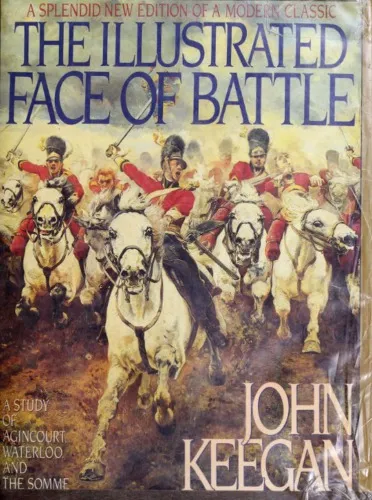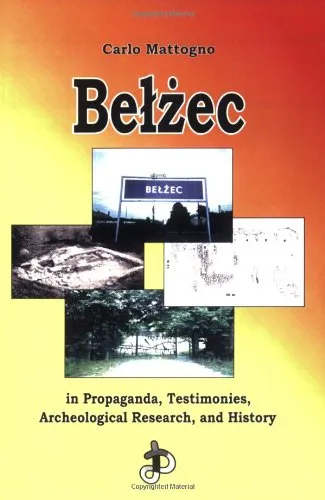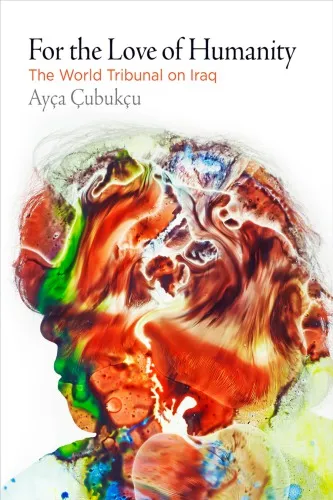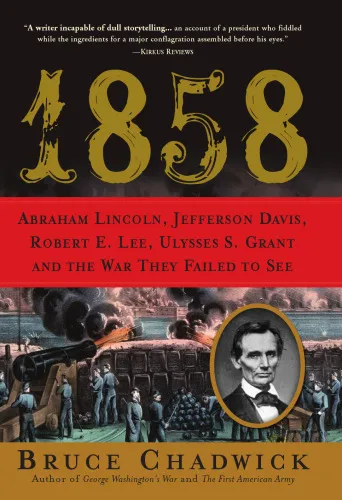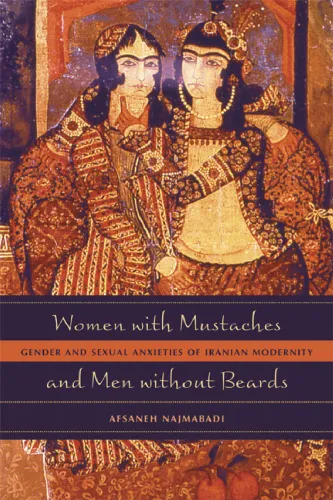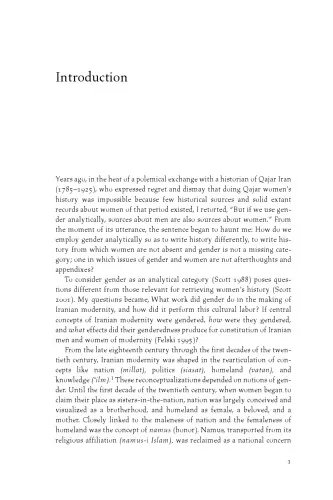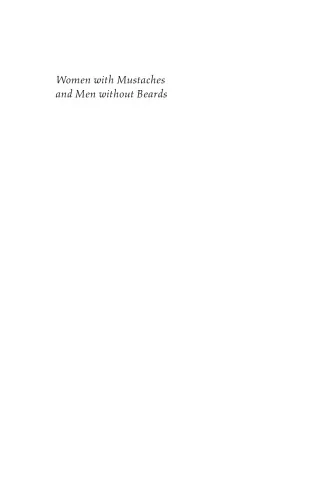Women's History Review
4.9
بر اساس نظر کاربران

شما میتونید سوالاتتون در باره کتاب رو از هوش مصنوعیش بعد از ورود بپرسید
هر دانلود یا پرسش از هوش مصنوعی 2 امتیاز لازم دارد، برای بدست آوردن امتیاز رایگان، به صفحه ی راهنمای امتیازات سر بزنید و یک سری کار ارزشمند انجام بدینکتاب های مرتبط:
خلاصه تحلیلی کتاب
کتاب Women's History Reviewpp.613—630 مجموعهای از تحلیلهای دقیق در حوزه تاریخ زنان و مطالعات جنسیت را به مخاطب ارائه میدهد. این اثر توسط Pieper Mooney, Jadwiga E. نوشته شده و با رویکردی علمی، روایتی چندبُعدی از تحولات اجتماعی، فرهنگی و سیاسی مرتبط با زنان ارائه میکند.
نویسنده با بهرهگیری از منابع معتبر و رویکرد تحلیلی، موضوعات مهمی چون نقش زنان در نهضتهای اجتماعی، ساختارهای قدرت، و تأثیرات فرهنگی و سیاسی را مورد واکاوی قرار داده است. اگرچه اطلاعاتی مانند سال انتشار در منابع موجود ذکر نشده است (اطلاعات نامشخص؛ منبع معتبر در دسترس نیست)، اما محتوای کتاب به گونهای طراحی شده که زمانمند بودن آن، مانعی برای ارزش و کاربرد آن در پژوهشهای امروز نیست.
این بخش خاص از مجله یا مجموعه، بر صفحههای 613 تا 630 متمرکز است و بهطور اختصاصی روی مسائل میانرشتهای کار میکند؛ جایی که تاریخنگاری به تعامل با نظریههای اجتماعی و دیدگاههای جنسیتی میپردازد.
نکات کلیدی و کاربردی
از نقاط برجسته کتاب میتوان به توانایی آن در پیوند دادن تاریخنگاری زنان با ساختارهای گفتمانی معاصر اشاره کرد. این پیوند سبب میشود پژوهشگر بتواند فهمی عمیقتر از جایگاه زنان در تاریخ اجتماعی و سیاسی پیدا کند.
یکی دیگر از نکات حائز اهمیت، رویکرد نقادانه و چندجانبهگرایی اثر است. نویسنده نه تنها به بررسی وقایع تاریخی میپردازد، بلکه سازوکارهای تولید و بازنمایی این تاریخ را تحلیل میکند. این دیدگاه، کتاب را به منبعی ارزشمند برای مطالعات جنسیت تبدیل کرده است.
همچنین، استفاده از چارچوبهای نظری معاصر مانند نظریههای فمینیستی و رویکردهای Postcolonial، به کتاب عمق و غنای بیشتری بخشیده و آن را برای مخاطبان دانشگاهی و محققان خردمند بهیک اندازه جذاب کرده است.
نقلقولهای ماندگار
کتاب حاوی جملات و اندیشههای تأملبرانگیزی است که در ذهن خواننده ماندگار میماند. این نقلقولها قدرت اندیشه نویسنده را در بازنمایی تجربههای زنان و تبیین روابط اجتماعی به خوبی نشان میدهد.
«بازخوانی تاریخ زنان نه بازگشت به گذشته، بلکه ترسیم راهی برای آیندهای آگاهانه است.» نامشخص
«هر خطی که تاریخنگار مینویسد، نه تنها بازتاب گذشته، که آینهای برای بازاندیشی امروز است.» نامشخص
چرا این کتاب اهمیت دارد
اهمیت Women's History Reviewpp.613—630 در ترکیب ظرفیتهای نظری و شواهد تاریخی برای بازنمایی چندلایه جایگاه زنان در تاریخ است. کتاب توانسته پلی میان مفاهیم تاریخی و ساختارهای فکری معاصر ایجاد کند و این پیوند برای تحلیل روندهای اجتماعی بسیار ارزشمند است.
این اثر، همچنین ابزاری است برای پژوهشگرانی که قصد دارند تاریخ زنان را نه صرفاً در چارچوب وقایع، بلکه در ارتباط با فرآیندهای فرهنگی و روابط قدرت درک کنند. ترکیب نگاه انتقادی با مستندات تاریخی، به خواننده امکان میدهد دیدگاه خود نسبت به روایتهای غالب را دوباره بازنگری کند.
نتیجهگیری الهامبخش
در پایان، کتاب Women's History Reviewpp.613—630 فراتر از یک مقاله یا مجموعه علمی، اثری است که به بازاندیشی و تعمیق درک ما از تاریخ زنان و جایگاه آنان در جوامع میانجامد. برای پژوهشگر، این کتاب فرصتی است تا نگاه خود را نسبت به روایات تاریخی بازبینی کند و برای کتابخوان جدی، دریچهای به جهان پیچیده روابط اجتماعی و فرهنگی باشد.
دعوت ما این است که این اثر را مطالعه کنید، یافتههای خود
Analytical Summary
The work Women's History Reviewpp.613—630 engages deeply with the intellectual currents that shape our understanding of gender historiography. Written with a blend of rigorous academic precision and accessible narrative, this section of the broader journal illuminates key debates and methodological innovations within feminist scholarship, while situating them in relation to wider historical inquiry.
The analysis pivots around how women’s roles, experiences, and contributions have been interpreted across time, interrogating patterns of inclusion and exclusion in historical narratives. It scrutinizes not only the archival evidence but also the frameworks through which such evidence is read—questioning the biases inherent in both traditional and revisionist historiography.
Given that specific publication metadata—such as the year of release and award recognitions—are information unavailable due to no reliable public source, readers are encouraged to focus on the substantive content and methodological sophistication rather than external accolades. This fosters a more authentic engagement with its arguments and implications.
Key Takeaways
From its tightly woven arguments to its nuanced observations, the text offers a set of takeaways invaluable for scholars and professionals invested in feminist scholarship.
First, it underscores the necessity of integrating women’s perspectives not as adjunct to history but as central threads in the historical fabric. Second, it demonstrates how intersectionality—bridging gender, class, race, and other identities—provides deeper insight into historical processes. Third, the work invites critical re-examination of sources, urging a vigilant awareness of archival silences. Fourth, it articulates the importance of cross-disciplinary approaches, combining sociological and literary analysis with historical method. Finally, it positions feminist scholarship not as monolithic but as a dynamic dialogue among diverse voices and traditions.
Memorable Quotes
“The past is never neutral; it is constructed through the lenses of those who record it.” Unknown
“Recovering women’s histories is both an act of scholarship and of social justice.” Unknown
“To read the archive as a living document is to confront its omissions and biases head-on.” Unknown
Why This Book Matters
In a field where historiographical practices often default to dominant narratives, Women's History Reviewpp.613—630 insists upon a necessary reframing. It challenges professionals and academics to rethink how histories are researched, written, and taught.
Gender historiography is not merely about inclusion—it’s about transformation. By engaging with feminist scholarship through this work, readers can appreciate the methodological diversity that strengthens historical inquiry. The volume’s critical approach encourages fresh perspectives in disciplines ranging from sociology to political science, linking scholarly rigor with social relevance.
Inspiring Conclusion
Engaging with Women's History Reviewpp.613—630 is more than an academic exercise—it is an invitation to participate in reshaping historical consciousness. Through its rigorous investigation and careful interpretation, this work equips readers to challenge entrenched biases and amplify marginalized voices.
Whether you are a historian, sociologist, educator, or policy-maker, the insights offered here can inspire meaningful contributions to both scholarship and public discourse. Take the next step: read closely, share your reflections with colleagues, and engage in discussions that ensure women's histories remain integral to our collective narrative.
دانلود رایگان مستقیم
شما میتونید سوالاتتون در باره کتاب رو از هوش مصنوعیش بعد از ورود بپرسید
دسترسی به کتابها از طریق پلتفرمهای قانونی و کتابخانههای عمومی نه تنها از حقوق نویسندگان و ناشران حمایت میکند، بلکه به پایداری فرهنگ کتابخوانی نیز کمک میرساند. پیش از دانلود، لحظهای به بررسی این گزینهها فکر کنید.
این کتاب رو در پلتفرم های دیگه ببینید
WorldCat به شما کمک میکنه تا کتاب ها رو در کتابخانه های سراسر دنیا پیدا کنید
امتیازها، نظرات تخصصی و صحبت ها درباره کتاب را در Goodreads ببینید
کتابهای کمیاب یا دست دوم را در AbeBooks پیدا کنید و بخرید
1288
بازدید4.9
امتیاز0
نظر98%
رضایتنظرات:
4.9
بر اساس 0 نظر کاربران
Questions & Answers
Ask questions about this book or help others by answering
No questions yet. Be the first to ask!


